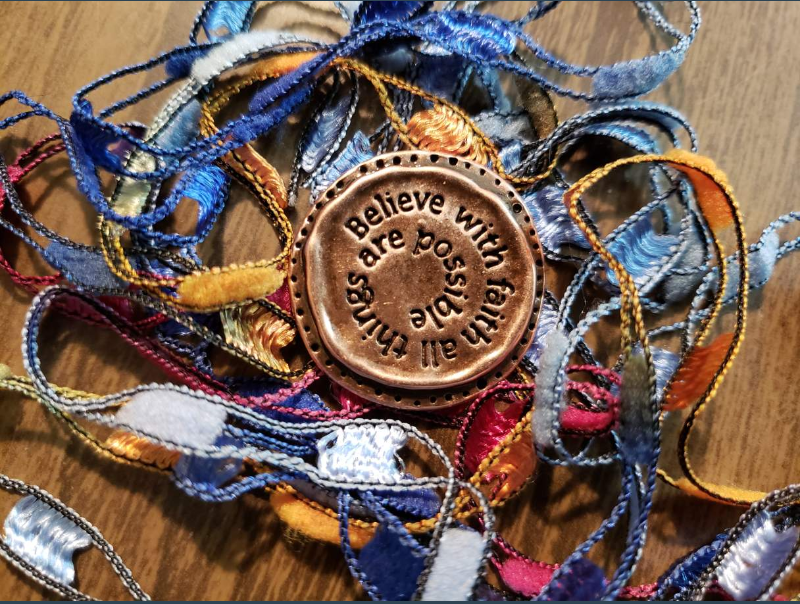I was born to do this.
As I set out my writing schedule for the rest of this month and next month, I was surprised at how much randomly drew my mind back to my childhood, my “girl”-hood and the heroes I had as a young person. They’ve returned to me over the years in one way or another. I wrote briefly yesterday about my recent encounters with Harriet Tubman. Next month is the birthday of Anne Frank who I loved and revered as a child, and who I will write about then. The CW network has a new series coming out in the fall of Nancy Drew! I loved the books, still do, and the series with the Hardy Boys from the 70s/80s. Laura Ingalls also comes to mind and of course her television counterpart, Melissa Gilbert.
Today, however, is the feast day of St. Joan of Arc. As a child learning about and reading about her, I don’t think I knew she was a saint. We weren’t Catholic, so my only exposure to Joan would have been through school books and history books as well as book reports and those types of school assignments that I was expected to do.
I have always believed in voices from beyond or experiences that don’t always fit neatly into our boxes to be tied with a ribbon. What’s funny and ironic in that belief is my usual cynicism that grabs onto any and every thought, but meeting ghosts, hearing voices, seeing visions, I almost accept universally, although myself more while less so from others along with a healthy grain of salt.
Like me, Joan of Arc was a girl. She sat under a tree and contemplated and when she heard the words from G-d, she was not immediately accepting, but she acquiesced to her duty. She changed her clothes, her ways, taking on the mantle of a soldier, cutting her hair short, donning a helm, armor and gauntlets and boots. She was determined to do G-d’s will, and she wouldn’t back down despite the lack of seriousness the men offered to her words. She boosted the French army’s morale.
They would eventually follow her to victory.
Was she fearless?
Probably not, but she had faith. Not faith in her survival, but in following G-d’s guidance and trusting in his will.
She was taken prisoner by an English faction and was put on trial for heresy by a pro-English bishop. The determination was already set; it was nothing more than a show trial. I was taken by some of the questions they asked her and the answers she gave.
In one exchange, they asked about when she saw the vision of the Archangel Michael and wanted to know if he was naked. I think that this was a real moment of misogyny (amidst all of the other examples of medieval misogyny) to try and embarrass her or suggest that this wasn’t G-d’s work, but some child’s fantasy.
Question at Trial: “Was he naked?”
“Do you think God has not wherewithal to clothe him?”
In the end, Joan of Arc was found guilty and was burned at the stake. She knew she was being punished by man; not G-d.
And it wasn’t long after, twenty-five years that the church reversed itself. Pope Callixtus III pronounced her innocent and declared her a martyr. She actually wasn’t officially canonized in 1920.
She is the patron of soldiers, prisoners, and people ridiculed for their piety among others.
As with Harriet Tubman, there was a alot more here than I ever learned, and I’ve only scratched the surface.
My favorite quote of hers with context:
Question at Trial: “Do you know if you are in the grace of God?”
“If I am not, may God place me there; if I am, may God so keep me. I should be the saddest in all the world if I knew that I were not in the grace of God. But if I were in a state of sin, do you think the Voice would come to me? I would that every one could hear the Voice as I hear it. I think I was about thirteen when it came to me for the first time.” – Joan of Arc
(Source: from https://www.biographyonline.net/quotes/joan-arc.html)
Please take the time and read The Song of Joan of Arc by Christine de Pizan. This link that I’ve shared also includes the transcripts of the trials and other documents. I think you’ll find them fascinating.


